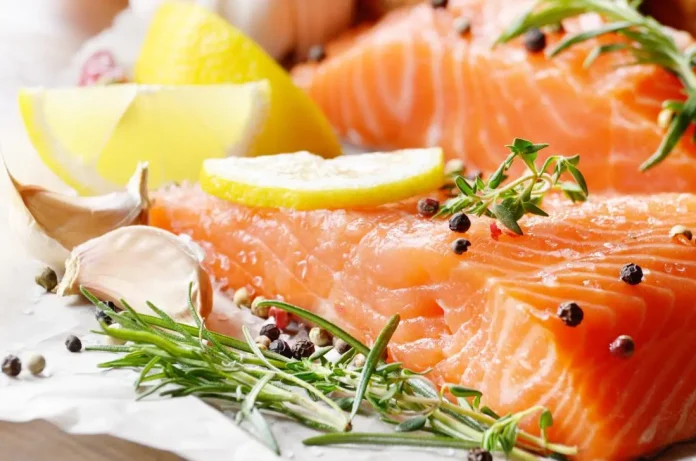The best foods to eat before exercising depend on the type of workout and a person’s goals. Foods rich in protein, for example, can help a person to build muscle with resistance training.
When choosing a pre-workout meal, it is important to aim for a balance of macronutrients. Macronutrients are dietary compounds that the body needs in large quantities to function correctly.
The three macronutrients are:
- protein
- carbohydrates
- fat
Macronutrients are all key sources of energy, but each can contribute differently to a pre-workout meal.
Protein
Protein supplies amino acids, and both are essential for a range of bodily functions, including the building, maintenance, and repair of muscle fibers.
Eating a meal that contains a significant amount of lean protein before exercising can help to improve performance.
Why is protein a good pre-workout food?
Protein can increase the amount of muscle mass gained from a resistance workout.
Intense bouts of resistance exercise damage the muscles, but consuming protein increases the number of amino acids in the body. These work to reduce deterioration, synthesize muscle proteins, and stimulate growth.
Consuming 20–30 grams of protein before a workout can result in an increased rate of muscle protein synthesis that lasts for several hours.
High-protein foods
The following are some examples of healthful foods that are rich in protein:
- fish, such as salmon and tuna
- poultry, such as chicken and turkey
- nuts
- beans
- lentils
- eggs
- soy
Anyone interested in gaining muscle should ensure that they receive an adequate overall daily protein intake.
Research has consistently shown that consuming between 1.6 and 1.8 gramsTrusted Source of protein for every kilogram of bodyweight is sufficient for building muscle.
Many sources recommend consuming more, but any additional protein is unlikely to make a significant impact on muscle mass.
Carbohydrates

Carbohydrates are an essential energy source.
Consuming the right amount of carbohydrates before a workout will ensure that the body has enough energy to perform well.
This is true for people engaging in cardiovascular and resistance exercises, among other kinds.
However, different types of carbohydrates will have a different impact:
- Simple carbohydrates: These are sugars that provide a rapid rise in energy. A common source of these carbohydrates is white bread.
- Complex carbohydrates: These include fiber or starch. They provide a slower, more long-term source of energy. Whole-grain foods are a good source of complex carbohydrates.
Which type of carbohydrate is better in a pre-workout meal?
Complex carbohydrates have a number of advantages, for example:
- Simple carbohydrates are short-term sources of energy. If a pre-workout meal includes too many simple carbohydrates, a person may feel a drop in energy before they finish their workout. Complex carbohydrates provide energy more consistently over a more extended period.
- Complex carbohydrates are components of foods that tend to be rich in nutrients, such as beans. Simple carbohydrates are typically components of foods that have little or no nutritional value, such as chocolate bars and cakes.
- Foods that contain complex carbohydrates have lower glycemic index scores than those that contain simple carbohydrates. A type of food with a low glycemic index score is unlikely to cause blood glucose levels to spike and increase the risk of type 2 diabetes.
The body digests complex carbohydrates more slowly than simple carbohydrates.
To increase energy ahead of a workout, a person should consume complex carbohydrates 2–3 hours in advance, and any simple carbohydrates 30–60 minutes in advance.
Complex carbohydrate foods
Below are some examples of healthful foods that contain complex carbohydrates:
- broccoli, sweet potatoes, and other vegetables
- whole-grain pasta
- beans
- lentils
- brown rice
- oats
- whole-grain bread
Fruits provide the best source of simple carbohydrates before a workout. Bananas are a popular choice, as they contain potassium as well as simple carbohydrates.
Fats
Fats are an essential energy source.
Traditionally, medical professionals have advised against consuming high-fat meals before exercise because the body digests fats more slowly than carbohydrates. This means that the body may not be able to break down and absorb fats before a workout begins.
Can fats help before a workout?

Before a workout, it may be better to eat a meal that focuses more on protein and carbohydrates than fats.
However, it is important to incorporate healthful fats elsewhere in a balanced diet.
It is also worth noting that not all fats are healthful.
Certain types, most notably saturated and trans fats, can negatively impact overall health.
Healthful-fat foods
Other types of fats are, however, highly nutritious. Unsaturated fats, for example, provide a range of health benefits.
Below are some foods rich in unsaturated fats:
- avocados
- nuts and seeds
- olive oil
When to eat a pre-workout meal
Ideally, a person should eat a meal rich in complex carbohydrates and protein around 2–3 hours before exercising.
Waiting a few hours after eating allows the body enough time to digest the meal.
Alternately, a person may prefer a smaller meal that is mostly made up of simple carbohydrates. In this case, they need only wait for 30–60 minutes before working out.
